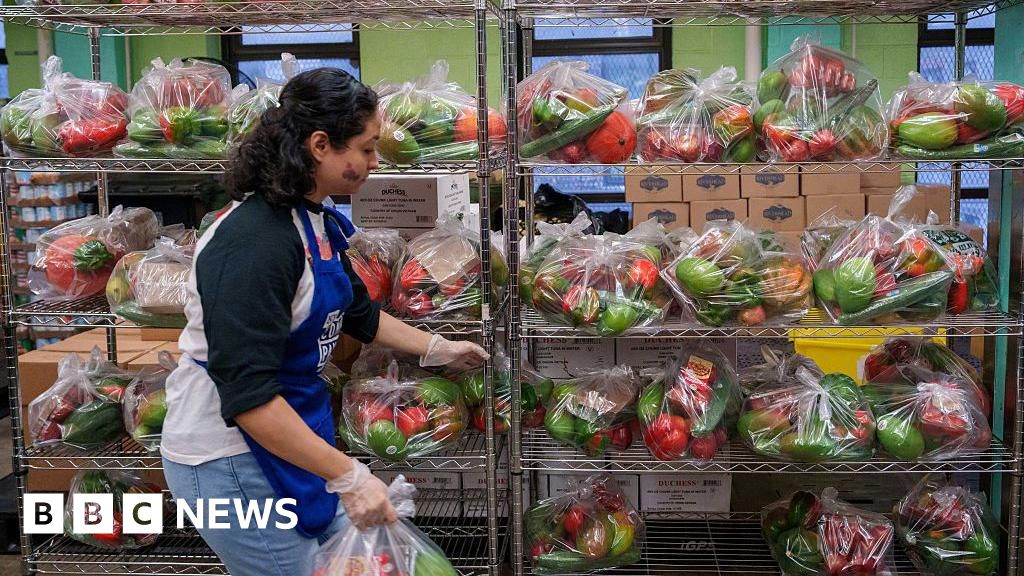
More than 42 million Americans are waiting with bated breath to hear if the Trump administration will use emergency funding to provide billions in food aid.
Judges gave the Trump administration until Monday at 12:00 EST (17:00 GMT) to give updates about how it plans to pay for the Supplemental Nutrition Assistance Program (Snap) benefits, also known as food stamps.
Funding for the program remains in limbo due to the more-than-month-long US government shutdown caused by the inability of Congress to agree on a funding deal.
Regardless of the judges’ ruling or other resolution, millions of Americans have gone without essential food assistance since funding for the program ran dry on Saturday.
While individual US states administer the benefits, the programme relies on money from the federal government, which has been unfunded and shut down since 1 October.
Federal judges in Massachusetts and Rhode Island ruled that the US Department of Agriculture (USDA) needs to use $5.25bn (£4bn) in emergency funds to make at least partial payments to Americans on Snap.
Snap costs about $8bn per month.
The judges both gave the Trump administration the option to use money set aside for contingencies to provide the benefits.
US President Donald Trump previously said he had instructed government lawyers to ask the courts how the administration could legally fund Snap, adding: “Even if we get immediate guidance, it will unfortunately be delayed.”
On Sunday, Treasury Secretary Scott Bessent said in a CNN interview that the president wanted to hear from the courts about how to legally move money around to fund Snap payments but they could go out as soon as Wednesday.
“There’s a process that has to be followed,” Bessent said. “So, we’ve got to figure out what the process is.”
Late last month, the USDA said it will not distribute food assistance funds starting 01 November because of the government shutdown, saying: “The well has run dry”.
Half the states and the District of Columbia sued the administration over the food-aid freeze and contended that they have a legal obligation to keep the program running in their jurisdictions.
Separately, cities and non-profits also filed a lawsuit.
With uncertainty surrounding federal Snap funding, some states said they would use their own money to fund Snap benefits.
Snap plays a vital role allowing many low-income Amerians to buy groceries. It provides them reloadable debit cards that they can use to buy food.
A family of four on average receives $715 per month, which breaks down to a little less than $6 per day, per person.
Disclaimer : This story is auto aggregated by a computer programme and has not been created or edited by DOWNTHENEWS. Publisher: BBC






